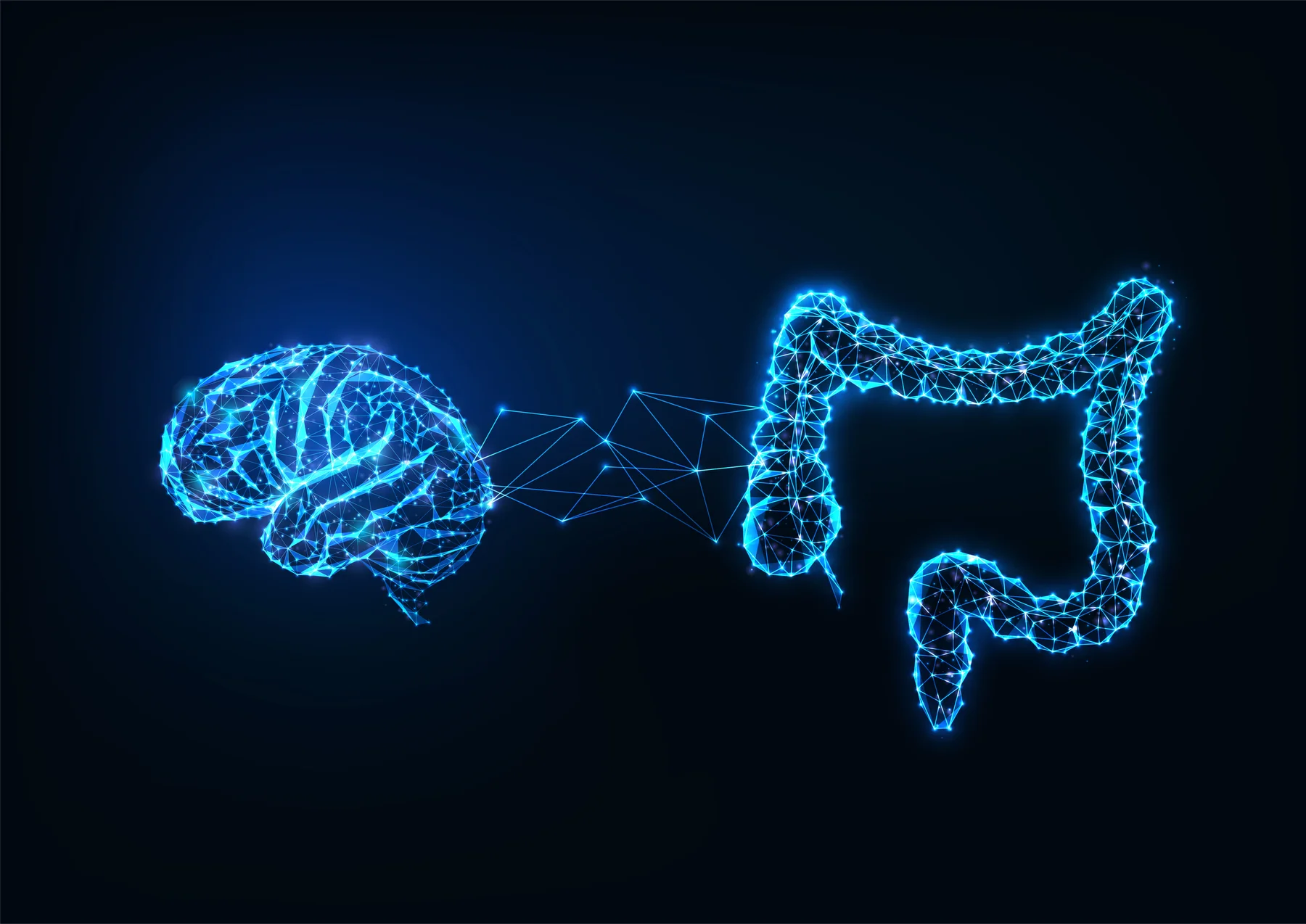
Understanding the Gut-Brain Axis
Most people understand that the brain and gut are connected, but few know how the connection works to regulate their day-to-day health. The same network called the gut-brain axis that is responsible for communicating "gut feelings" is also responsible for regulating our "fight-or-flight" response. That said, when your gut-brain health isn't supported, you're more likely to experience stress-induced health problems and psychological conditions like anxiety and depression.
In this post, you'll learn exactly what the gut-brain axis is and how best to support the health of your gut-brain axis.
What Is the Gut-Brain Axis?
Microbes colonize the body's internal and external surfaces, and they're found most abundantly in the gut. In fact, microbial organisms outnumber human cells by a ten-to-one ratio. The gut-brain axis is the communication system between the gut and brain: a two-way signaling path between gut microbes and the central nervous system (CNS), as well as the autonomic nervous system, enteric nervous system and the vagus nerve.
The network of nerves responsible for your "gut feelings" includes those from the emotional and cognitive areas of your brain that are linked to nerves in the gut and its periphery. Because the brain and gut are connected in this way, gut-related distress can trigger psychological problems, while psychological distress can likewise trigger gut problems.
How Your Gut Affects Your Health and Psychology
Research shows your gut health affects your brain health and psychological well-being. If your gut is troubled, the signals it sends to the brain can result in symptoms like anxiety and depression.
The Gut's Role in Producing Brain Chemicals
One of the gut's functions is to synthesize the neurotransmitters that facilitate communication between brain cells. Serotonin and dopamine are among these neurotransmitters beneficial gut bacteria produce, suggesting the makeup of your microbiome directly impacts your brain chemistry.
Beneficial bacteria in your gut secrete gamma-aminobutyric acid (GABA), which is a neurotransmitter responsible for calming the central nervous system. Sufficient levels of this neurotransmitter are vital for managing stress and keeping anxiety at bay. In a study published in NeuroImage, supplementing with probiotics raised GABA levels in mice after four weeks. Compared to the control group, the probiotics group showed reduced severity of depression and anxiety.
The Gut's Role in Your Blood-Brain Barrier
Another function of gut bacteria is to produce butyrate, acetate, and propionate: fatty acid byproducts of gut microbes fermenting carbohydrates from food. These small chain fatty acids are required in the formation of the blood-brain barrier: the protective filter that protects the brain against neurotoxins. Without the work of gut bacteria to help develop the blood-brain barrier, it's permeable enough to let harmful toxins through and affect your brain's health and function.
How Your Mental Health Affects Your Gut
If you've ever felt sick to your stomach when you were nervous about something, you probably aren't surprised to hear your mind affects your gut. Symptoms of intestinal distress, such as diarrhea, indigestion, and acid reflux, can potentially be brought on by stress. Too much stress will prevent your gut from doing its job, and chronic stress can really take a toll on your gut's health.
Research shows that psychological stress affects the balance of good-to-bad bacteria in your gut in a way that sends more stress signals back to the brain in a feedback loop. It suppresses the growth and proliferation of beneficial bacteria while allowing bad bacteria to flourish. When microbiome balance is tipped in favor of the malicious microbes, you can't assimilate nutrients from food as effectively. You may also experience symptoms like gas and heartburn.
What You Can Do to Boost Your Gut-Brain Health
The strength and vitality of your gut-brain connection rely on the health of both your gut and psychology since they directly affect each other. What you can do to improve gut health also helps with mental health and vice versa. This means you can support the health of your gut-brain axis altogether with the same techniques. Here's what you can do:
1. Stimulate Your Vagus Nerve
The vagus nerve is the longest of your 12 cranial nerves, running from your brain to your large intestine. Activities like laughing, humming, applying cold water to your face, and deep belly breathing with longer exhales than inhales all stimulate your vagus nerve, which improves the communication between your brain and gut. Stimulating your vagus nerve doesn't just strengthen your gut-brain axis but also helps you manage daily stress. In the long term, it helps you improve your body's resilience to stress.
2. Eat Foods that Strengthen Your Gut-Brain Axis
Foods rich in Omega-3s, particularly oily fish, help strengthen the connection between your gut and brain. Prebiotics are what good bacteria in your gut feed on, and you can get them from your diet. Prebiotic-rich foods such as artichokes, bananas, and oats, help nourish good bacteria in your system so that beneficial microbial colonies can thrive. Fermented foods contain both prebiotics and probiotics and are known to support gut health.
3. Take Probiotic Supplements
You can also take probiotic supplements to support your gut-brain health. Some probiotics are blended with prebiotics to boost the impact. Some of the other benefits of probiotic supplements are reducing inflammation, better digestion, and preventing or improving irritable bowel syndrome.






